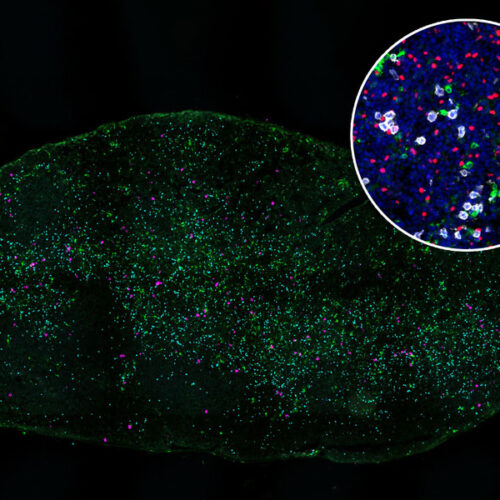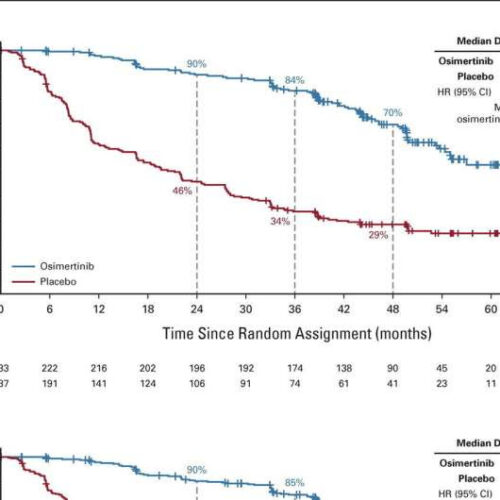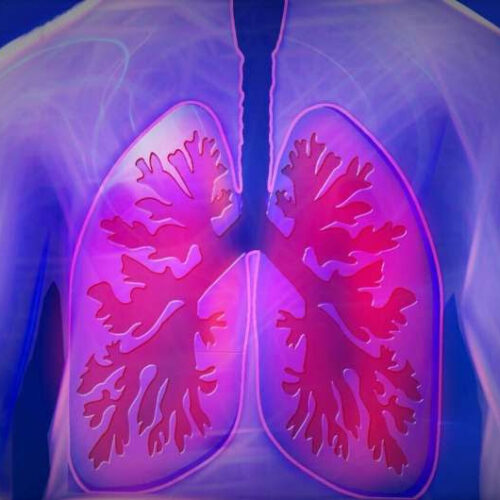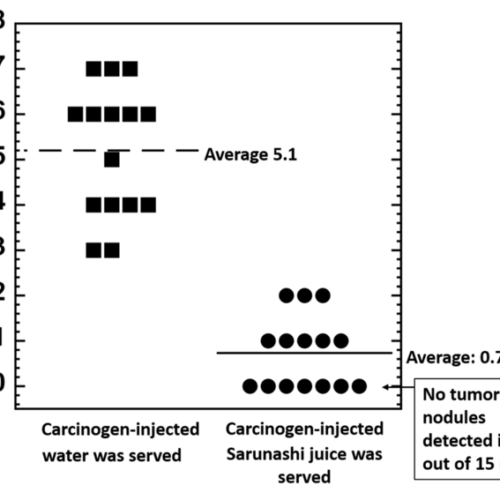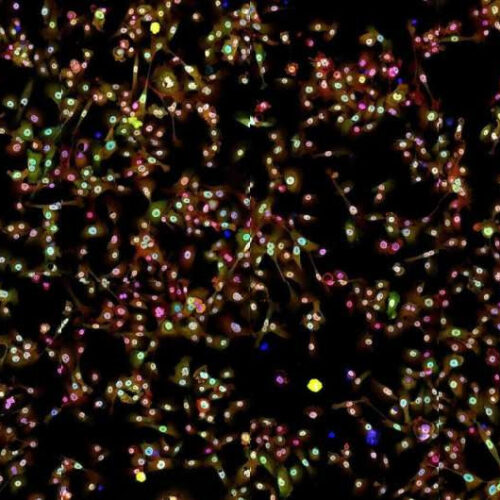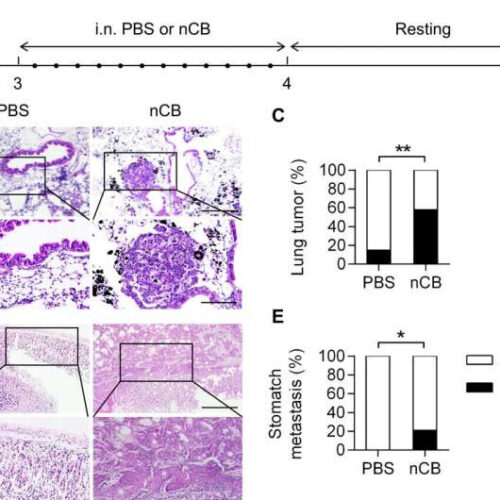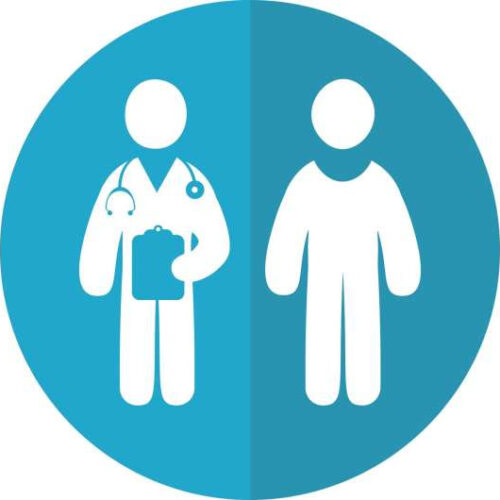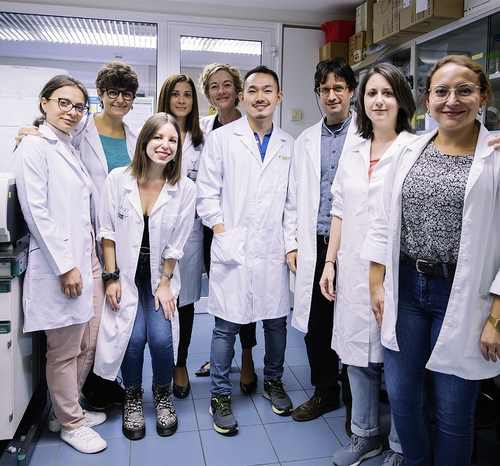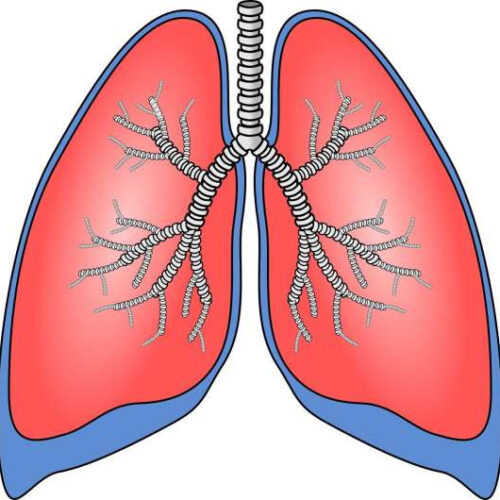Anne Trafton | MIT News Office Publication Date: February 2, 2023 PRESS INQUIRIES Caption: A new MIT study explains why dendritic cells (green) in lymph nodes that drain from the lungs fail to stimulate killer T cells (white) to attack lung tumors.Credits: Courtesy of the researchers Immunotherapy — drug treatment that stimulates the immune system...
Tag: <span>Lung cancer</span>
Clinical trial shows significant disease-free survival for patients diagnosed with non-small cell lung cancer
by Yale University DFS per investigator assessment. Kaplan-Meier estimates of duration of (A) DFS in patients with stage II-IIIA disease and (B) in the overall population (stage IB-IIIA) by seventh edition staging per the protocol (full analysis set). Tick marks indicate censored data. An HR < 1 favors osimertinib. DFS, disease-free survival; HR, hazard ratio;...
AI TOOL PREDICTS RISK OF LUNG CANCER
Lung cancer is the leading cause of cancer death in the United States and around the world and low-dose chest computed tomography (LDCT) is recommended to screen people between 50 and 80 years old who have a significant history of smoking or currently smoke. Lung cancer screening with LDCT has been shown to reduce deaths from...
Artificial intelligence tool developed to predict risk of lung cancer
by Massachusetts General Hospital Credit: CC0 Public Domain Lung cancer is the leading cause of cancer death in the United States and around the world. Low-dose chest computed tomography (LDCT) is recommended to screen people between 50 and 80 years of age with a significant history of smoking, or who currently smoke. Lung cancer screening...
Actinidia arguta (sarunashi) juice inhibits lung cancer in mice
OKAYAMA UNIVERSITY IMAGE: IN A STUDY BY RESEARCHERS FROM OKAYAMA UNIVERSITY, ACTINIDIA ARGUTA (SARUNASHI) JUICE REDUCED TUMOR NODULES IN CARCINOGEN-EXPOSED MICE CREDIT: SAKAE ARIMOTO‑KOBAYASHI Lung cancer is the leading cause of death in Japan and across the globe. Among all the cancers, lung cancer has one of the lowest five-year survival rates. Smoking tobacco and...
New bacterial therapy approach to treat lung cancer
by Holly Evarts, Columbia University School of Engineering and Applied Science Fluorescence microscopy image of lung cancer cells stained with antibodies against proteins involved in cellular growth. Credit: Dhruba Deb/Columbia Engineering Lung cancer is the deadliest cancer in the United States and around the world. Many of the currently available therapies have been ineffective, leaving...
Ultrafine particles can change defense against lung cancer
by Graciela Gutierrez, Baylor College of Medicine nCB accelerates NSCLC development and metastasis in mice. (A) Schematic diagram of nCB exposure in Pts4d/d mice. Three-month-old Pts4d/d mice (C57BL/6 background) were exposed to sterile PBS or nCB (20 mg/ml in sterile PBS) 12 times over a period of 1 month and euthanized after an additional month. i.n., intranasal...
Preliminary data suggest that ROS1 inhibitor, NVL-520, is well-tolerated and active in non-small cell lung cancer
by European Organisation for Research and Treatment of Cancer Credit: Pixabay/CC0 Public Domain Preliminary data from a phase I clinical trial of a new drug called NVL-520 for patients with non-small cell lung cancer (NSCLC) and other solid tumors, suggest that it may have the potential to both halt tumor growth by inhibiting a cancer-causing...
New therapeutic target against the most common lung cancer
UNIVERSITY OF BARCELONA IMAGE: FROM LEFT TO RIGHT: MARSELINA ARSHAKYAN, ELBA MARÍN (FRONT), PAULA DUCH, CRISTINA TEIXIDÓ, NOEMÍ REGUART, RAFAEL IKEMORI, JORDI ALCARAZ, MARTA GABASA AND NATALIA DÍAZ. CREDIT: UNIVERSITY OF BARCELONA The TIMP-1 protein levels in both tissues and blood have been repeatedly associated with a poor prognosis in lung cancers, but its role...
The obesity paradox in lung cancer diagnosis may differ by race
by Makhari Dysart, Thomas Jefferson University Credit: Pixabay/CC0 Public Domain Lung cancer is the leading cause of cancer death in the U.S., making up 25% of cancer deaths. With obesity rates simultaneously rising, researchers have investigated the connections between cancer risk and body mass index (BMI). Unlike most other cancer types, where higher BMI is...

